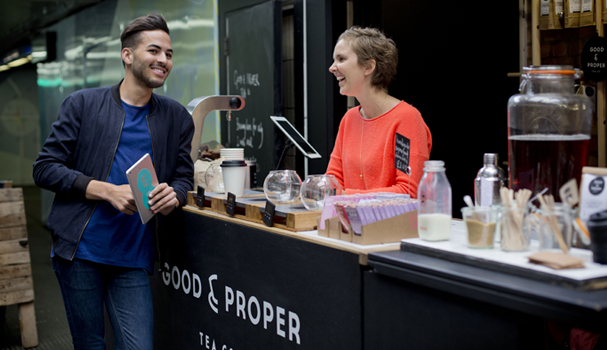While some would see empty storefronts on a high street as a bad omen, many a canny entrepreneur is realising there is an opportunity to be seized. With the option of short-term contracts, reduced overheads and the buzz generated by a new opening on the high street, it’s no wonder more people are exploring the option of launching a pop-up store.
A new study from the Centre for Economics and Business Research (Cebr) and EE suggests that this form of retail is going from strength to strength in the UK, with 10,000 pop-ups currently trading on our streets. Granting entrepreneurs new levels of freedom, pop-up stores are flourishing in the capital and the trend is beginning to be felt across the rest of Britain. And the contribution that these little gems are making to the country’s coffers can’t be ignored. Already a £2.1bn industry, the pop-up economy is expected to grow by 8.4% over the next year, approximately 2.5 times faster than the retail market as a whole.
Employing around 23,400 people, the nation’s pop-ups are more than just your niche seasonal outlets. Coupled with the recent talk of a business rates reform, it means that more cost benefits could be on the horizon for people who utilise this ever more popular business format.
The report from Cebr and EE comes alongside the launch of the Pop-Up UK campaign, a joint venture between EE, the British Retail Consortium (BRC) and Appear Here, the pop-up rental company, which aims to help pop-ups get started by removing technological barriers and connecting entrepreneurs with their ideal pop-up locations. It hopes to get 3,000 entrepreneurs set up in pop-up shops over the course of the next three years.
“These figures demonstrate the important role pop-up retail is playing in the UK economy, but we’re only at the beginning of this pop-up revolution,” said Richard Lim, head of business information at the BRC. “The novel use of these temporary spaces showcases the innovative nature of UK retail which continues to adapt to consumer demands and structural changes occurring throughout the industry.”
With SMEs representing the backbone of the British economy, any scheme that makes it easier for start-ups gets a thumbs up from us. ![]()
Share via:


















































